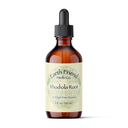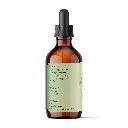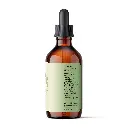Rhodiola Root
Supports your adrenal gland functions and encourages a healthy response to physical, emotional and mental stress by normalizing cortisol levels and other stress-related hormones.
Rhodiola also boosts your feel-good endorphins (hormones), according to a comprehensive review published in the journal of the American Botanical Council.
Common Uses of Rhodiola
- Normalize Adrenal Hormones
- Increase Stamina
- Decrease Stress
- Encourages a Healthy Mood
- Enhance Memory and Brain Functions
- Strengthen Heart and Cardiovascular Functions
- Helps Prevent Blood Clots
- Boost Immune System
A Chinese animal study showed that Rhodiola lowered blood pressure and slowed heart rate, while Russian studies found that it normalizes heart rhythm and prevents stress-induced heart damage. It also improves blood flow through the brain, which helps prevent blood clots.
According to Russian and Korean animal studies, Rhodiola protects your liver to recover from exposure to various poisons.
Rhodiola Root Helps Adrenal Gland
Rhodiola is one of a group of powerfully acting herbs called adaptogens.
True adaptogens have the following properties in differing degrees.
- Produce a nonspecific (total body) response that increases resistance against harm from physical and emotional stress (disease, anxiety, etc.)
- Have a normalizing effect, improving the function of many body systems
- Aid in increasing the body's ability to recover from debilitating acute and chronic circumstances
- Be nontoxic, causing no significant side effects.
Rhodiola Root is one of the finest and most consistently effective of the few well-known adaptogens for its ability to help recovery, regeneration and continual well-being.
History of Rhodiola
The fragrant Rhodiola rosea root, also known as Roseroot, has been used throughout history in Iceland, Sweden, France, Russia, and Greece. Popular with the Vikings to enhance mental and physical endurance, this revered adaptogen was included in the first Swedish Pharmacopoeia.
The respected Greek physician Dioscorides, discussed the virtues of this root in his De Materia Medica discourse in the first century A.D.





